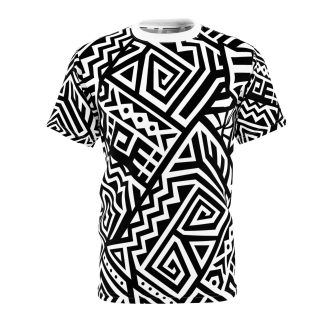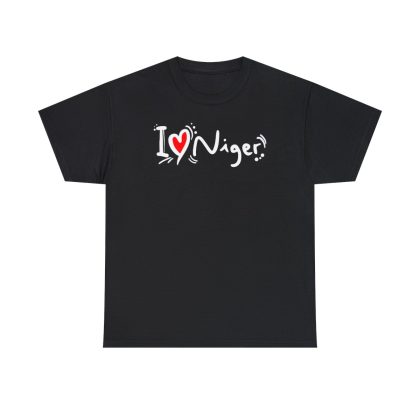The Biblical History of the Yoruba People, Whose Real Name is Edekiri.
The Biblical History of the Yoruba People, Whose Real Name is Edekiri.
The Biblical History of the Yoruba People, Whose Real Name is Edekiri.
source
Click to rate this post!
[Total: 0 Average: 0]
Post Views: 8
I Like ThisUnlike
0
Please Login to Vote
I Dislike ThisUn-Dislike
0
Please Login to Vote


















Nimrod is not Lamurudu.
Nimrod is Nnemurudum an Igbo language.
Lamuel is akin to Lamurudu.
You are set up to lie to the people. You know damn well the word Yoruba didn’t even exist 500 years ago. The Yorubas are the descendants of the ancient Israelites.. but you’re set up to lie to the people. May Yah judge u
Did Yorubas originate from Ancient Egypt?
According to Samuel Johnson's book "The History of the Yorubas from the Earliest Times to the Beginning of the British Protectorate" published in 1921, there is strong evidence to suggest that the Yorubas originated from the East. Their habits, manners, customs, and other cultural aspects all support this theory.
Furthermore, Johnson ;a renowned historian argues that the Yorubas emigrated from Upper Egypt to Ife, which is supported by the existence of sculptures known as the "Ife Marbles." These sculptures, attributed to the early ancestors of the Yoruba people, exhibit Egyptian characteristics and can still be observed in Ife.
In addition to cultural and archaeological evidence, linguistic similarities between the Yoruba and ancient Egyptian languages also provide support for a connection between the two peoples. According to Ferdinand de Saussure, linguistic evidence is a reliable indicator of cultural contact between different groups. The Yoruboid (Yoruba) people, as claimed by Saussure in his book "The General History of Africa" (1972), were one of the largest inhabitants of Egypt. By examining the ancient Egyptian language and comparing it to Yoruba, more than 500 vocabularies can be deduced, excluding Greco-Roman and Arab influences.
Over 1,000 ancient Egyptian words are found in Yoruba language and are still in use today. Ancient Yorubas people are the ancestors of ancient Egyptians.
Here are a few examples of linguistic similarities between ancient Egyptian words and their corresponding Yoruba counterparts:
Wu (Rise) – Wu (Rise)
Ere (Python) – Ere (Python)
Horise (a great god) – Orise (a great god)
Ged (to chant) – Igede/Ogede (chant)
Sueq (a fool) – Suegbe (a fool)
Ta (sell) – Ta (sell or offer)
Enru (fear) – Eru (fear)
Kun or gun (brave) – Ekun (brave)
Ma or mi (to breathe) – Mi (to breathe)
Khu (to kill) – Ku (die)
Hika (evil) – Ika (evil)
Edjo (cobra) – Ejo (snakes)
Horiwo (head) – Oriwo (head)
AK (male) – Ako (male)
Mu (water) – Mu (drink water)
Do (river) – Odo (river)
Aru (mouth) – Arun (mouth) (Ilaje dialect)
Ash (invocation) – Ase (invocation)
Po (many) – Po (many/cheap)
Budo (dwelling place) – Bu do (dwelling place)
These linguistic resemblances further support the notion that Yoruba words bear similarities to ancient Egyptian words and provide further support for the historical and cultural connections between the Yoruba people and ancient Egypt.
Scholars have also noted that certain Yoruba subgroups from the eastern region, such as the Itsekiri, Ilaje, Ijebu, and Onoara, exhibit a closer linguistic connection to Egypt than the groups from Oyo or Ife. These eastern blocs can be seen as phonetic variations of the more fluid Yoruba language spoken in Oyo.
For instance, Bolaji Idowu suggests that the word "Oritese" originated from the Itsekiri-Owo axis within the eastern Yoruba kingdom. This word "Oritese" closely resembles the Egyptian term "Horise," both of which referred to significant water deities before evolving into celestial or heavenly divinities. Furthermore, both words share the same etymological origins, as "Hori" or "Ori" means "head" in both Yoruba and Egyptian cultures.
The abundance of these linguistic similarities cannot be dismissed as mere coincidence, indicating a historical connection between the Yoruba and Egyptians.
Exploring Artistic Legacies: A Comparative Study of Yoruba and Ancient Egyptian Creativity
The Yoruba people are renowned for their rich artistic heritage, which encompasses various forms of visual and performing arts. Their artistic creativity is deeply rooted in their cultural and spiritual beliefs, serving as a means of expression, communication, and preservation of their history and traditions. When comparing the artistic standards of the Yoruba with ancient Egypt, both civilizations demonstrate remarkable achievements in the field of art.
One notable aspect of Yoruba artistic creativity is their mastery of sculpting and carving. The Yoruba are renowned for their intricate woodcarvings, stone sculptures, and bronze castings. These artworks often depict human figures, deities, and mythical creatures, displaying a high level of craftsmanship and attention to detail. The Yoruba sculptures are characterized by their realistic and expressive features, capturing the essence of the subject matter.
Similarly, ancient Egypt holds a significant place in the history of art, particularly for its monumental sculptures and elaborate tomb paintings. Egyptian art emphasized formalism and idealized representations, often portraying pharaohs, gods, and goddesses. The sculptures, such as the iconic Great Sphinx and colossal statues of pharaohs, exemplify the Egyptians' skill in stone carving and their ability to create grand and awe-inspiring artworks.
In terms of artistic standards, both the Yoruba and ancient Egyptians demonstrate a high level of technical expertise and a sophisticated understanding of aesthetics. Both civilizations valued the representation of the human form, striving for accuracy and symbolism in their artistic creations. Moreover, both cultures employed art as a means of expressing religious beliefs, with sculptures and paintings serving as conduits for spiritual worship and storytelling.
While there are similarities in artistic standards, it is important to note some distinctive characteristics of Yoruba art. The Yoruba place great importance on the spiritual and ritual significance of their artworks. Sculptures and masks are often used in religious ceremonies and festivals to connect with deities and ancestors. Additionally, Yoruba art is renowned for its use of vibrant colors, intricate patterns, and symbolism, which reflect the cosmology and mythology of the Yoruba worldview.
On the other hand, ancient Egyptian art, while also imbued with religious symbolism, was more focused on permanence and the afterlife. Egyptian tomb paintings, hieroglyphic inscriptions, and elaborate burial rituals served to ensure the deceased's journey to the afterlife and eternal preservation.
Indeed, the artistic creativity of the Yoruba people is notable for its diverse forms, technical mastery, and spiritual significance. When compared to the artistic standards of ancient Egypt, both civilizations display exceptional achievements in art, particularly in sculpture and representation of the human form. While sharing similarities in technical skill and religious symbolism, the Yoruba art stands out with its emphasis on vibrant colors, intricate patterns, and cultural significance. The artistic heritage of both the Yoruba and ancient Egyptians continues to captivate and inspire people around the world, showcasing the enduring power of human creativity.
were you are getting it wrong is that during the time of nimrod the whole world was of one language and one tribe. So the word nimrod is the word of the original one language. Do not associate yoruba language to it. Dialect came into existence because God Almighty made it so so that they will fill the earth.
Rubbish, complete rubbish. We have have nothing to do with that colonial enslaved bible
Complete jargon. DNA has proven this narrative of Yorubas to be false n not from Nimrod but slavery from Babylon made the Yorubas to have added false Babylonian kings in their history.
I have taken time to listen to your narrative and found it to be false. Before oduduwa came to Yoruba land he met them (Yorubas) their. The name you claimed the Yorubas bear before now is borne out of imagery and features of envy except you can produce authentic documentary evidence. Ancient traditions of the Yorubas have similarities with ancient Israel. Such things like circumcision which predate Christianity and westernisation. Ditto for naming ceremony, Preferring male children to females unlike others like lgbos and Hausas who prefer females, issue of inheritance, issue of kingship the Yorubas cherish and adore their kings unlike the lgbos, in marriage practice like if the elderly died the next of kin would marry the wife all these and more are pointers to lsreali origin.
wrong information….but cush,egyptians,caananites,israelites in the time of nimrod including abraham were blacks
Why that others are Always trying to find where YUDAH YORUBA came from but the YORUBAS are not concerned about trying to prove nothing to anyone..? You are the rich and rulers and still calling the poor in spirit, names..IAMTHATIAM will judge you..
Half knowledge is worse than complete ignorance. Reno saw "Edekiri" in a language classification catalogue and concluded that it is some sort of name for Yoruba people. "Edekiri" is a term made up by linguists to separate Igala and other Yoruboid languages from Yoruba. Yoruba dialects like Ijebu, Oyo, Ife, Ijesa etc plus Itsekiri are grouped as Edekiri. Not that there are any people actually called Edekiri. lmao
Awesome, I would like more on this.
Ugiagbe Efosa Nosakhare
2086727031
Zenith Bank
This is quite educative
I’m American and right now trying to find my roots of Africa I came across your website explaining the connect to Yoruba and ancient Egypt and there connections to figure out who I am and where I come from the Europeans gave us there piece of religion which I no longer relate to anymore I’ve done my research on Greeks and Roman people and what there belief was and still reaching how does Christ tie in to their belief system
This is the video you used the word Lamurudu.
Esan Abiola
0031337605
Access bank.
#RenosNuggets
2020429536
Polaris Bank
Abiona Samuel O
Name:Amodu ayobamidele bank:zenith acct no. 2170174952. Lamurudu! Got it
Lamurudu here too
It is known. My dad told me years ago that that's where we coined "Omoluabi" i. e òmò Noah bi
Please how can we get the full conversation
Give us more ooo…. it’s quite fascinating 💯
Watching here it's afternoon